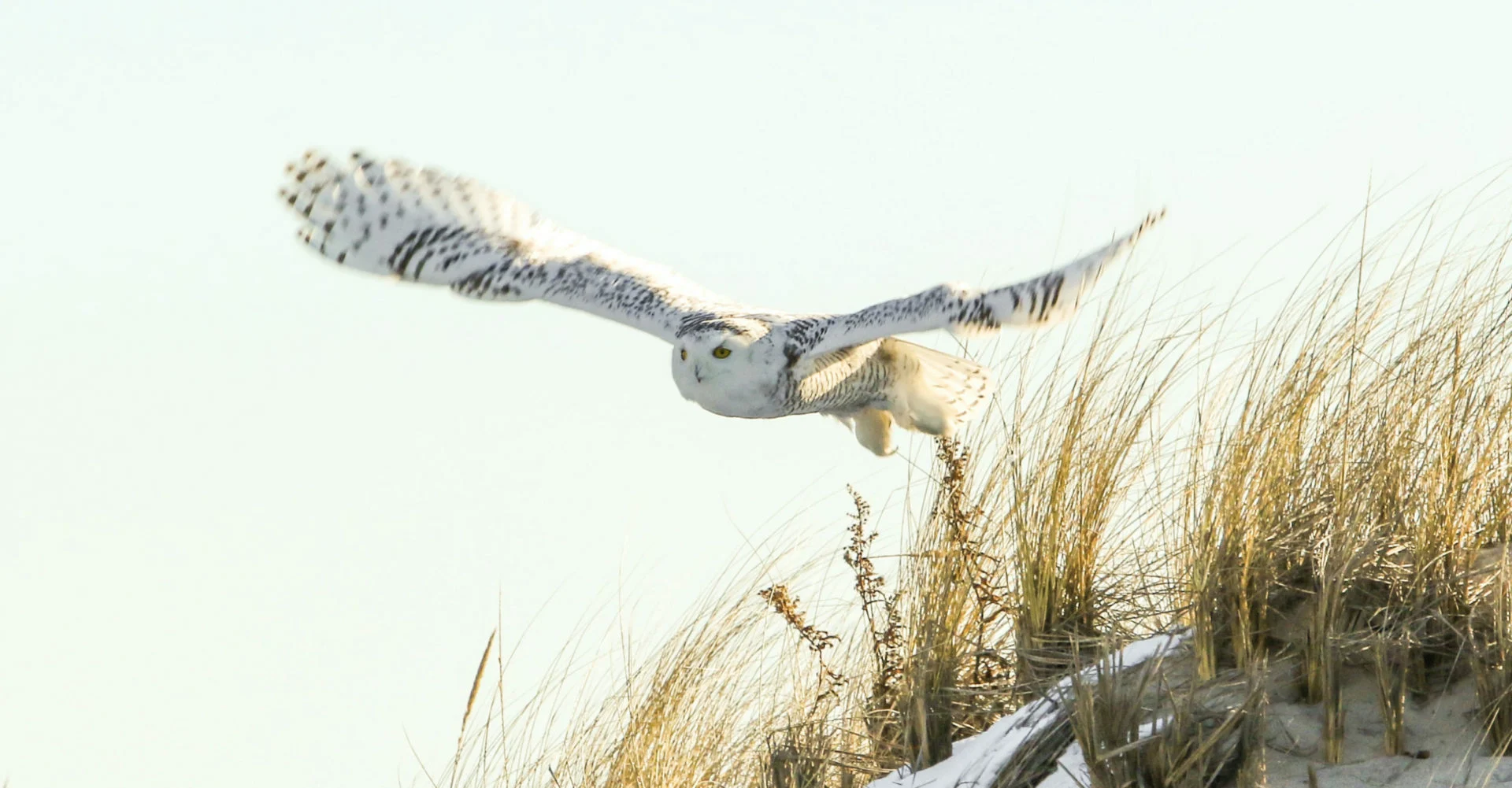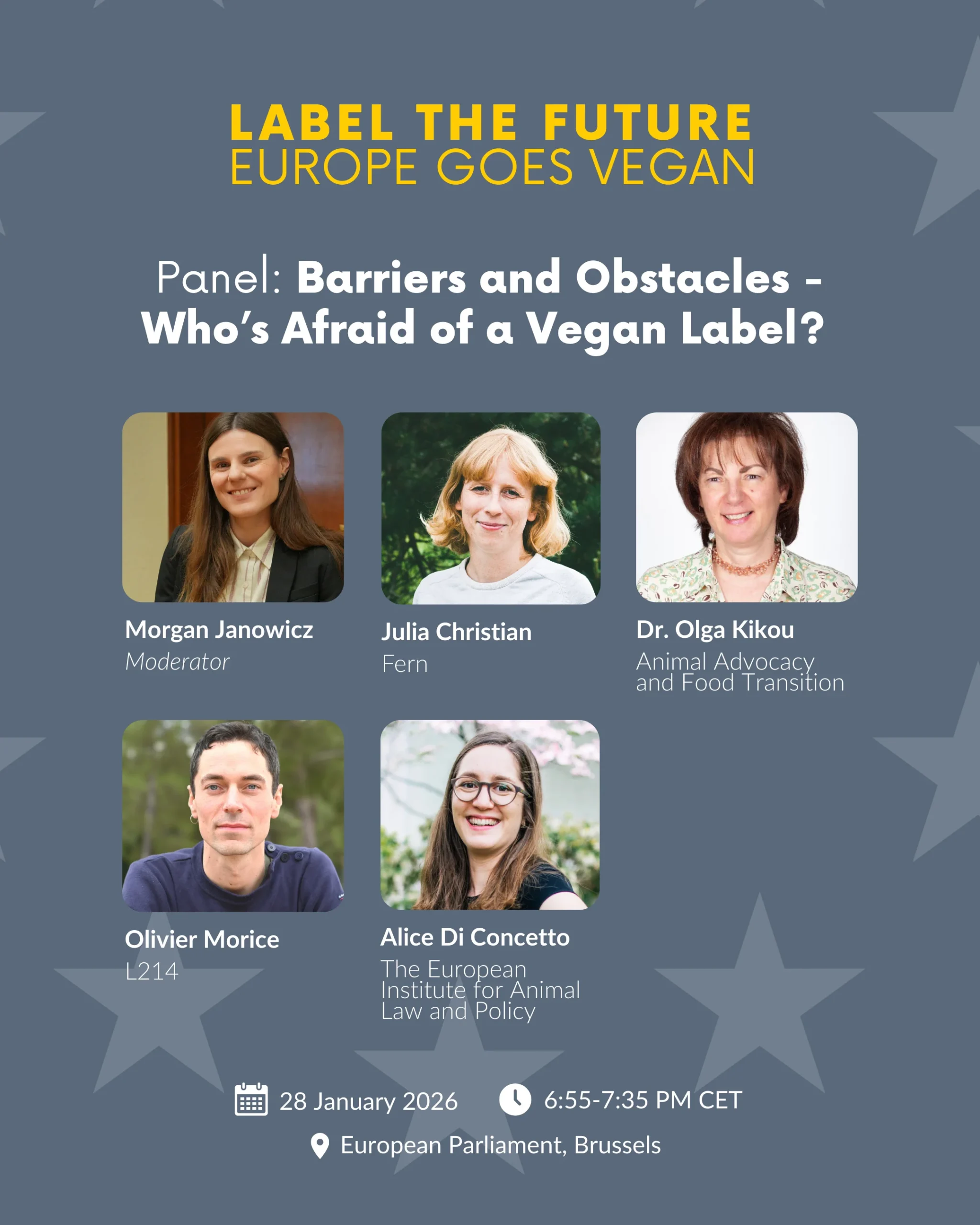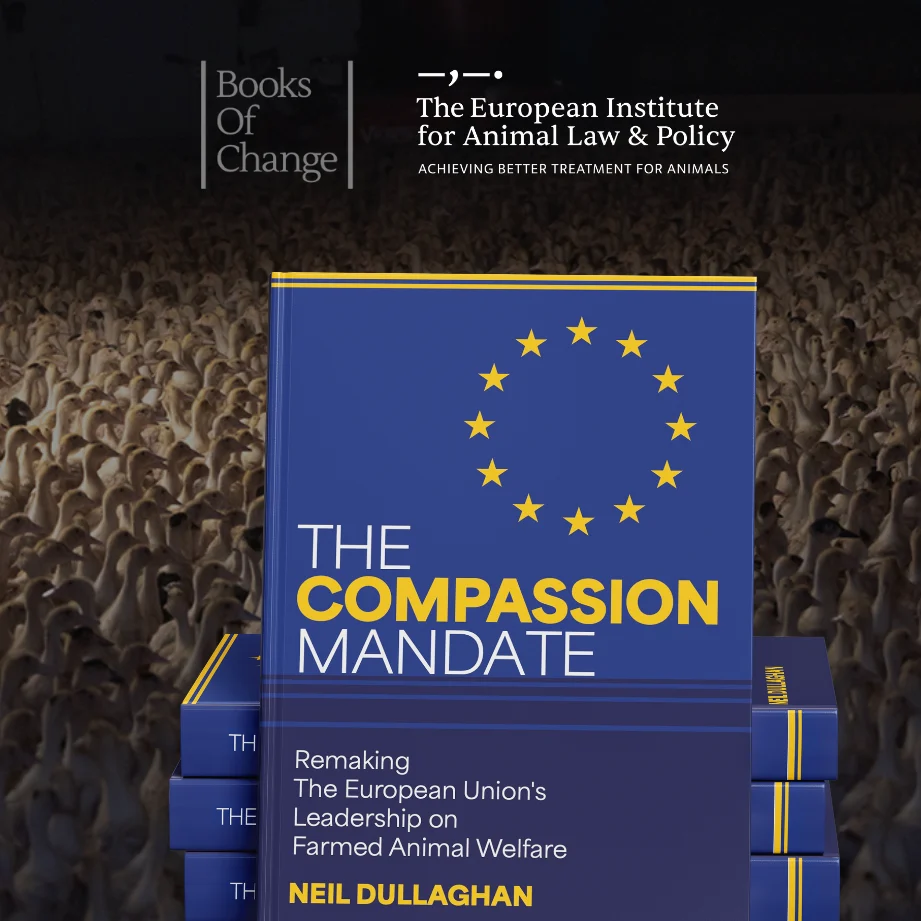The European Institute for Animal Law & Policy advocates for animals at EU and national levels, and we provide expert research, training, public affairs, and monitoring services to nonprofits and public administrations to help them achieve better treatment for animals.
Our mission is to guide all parties involved in animal-related rule-making, whether in legislation and regulations, private standards, or non-written common industry practices.
Our expertise focuses on non-human animals used for all types of exploitative purposes: food and fiber, entertainment, science, and companionship, as well as wild animals, which are increasingly harvested as commodities.
The Institute nurtures non-violent solutions that alleviate suffering and exploitation. We also support the development of animal law as an autonomous legal and academic discipline.





